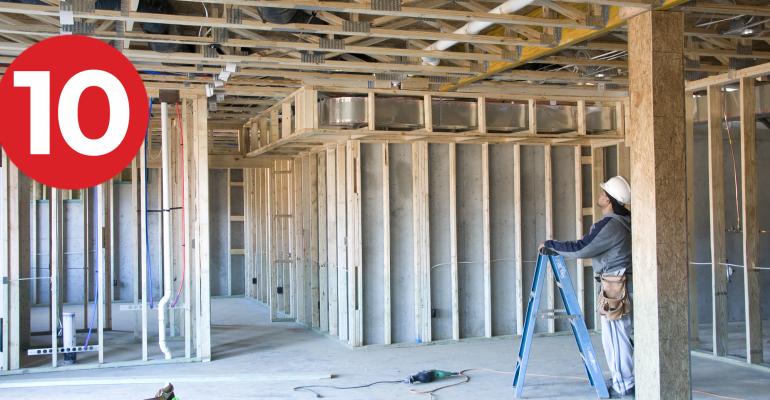- Watching the Real-Estate Bust From the Streets of San Francisco “San Francisco’s downtown properties were some of the most valuable in the country. Buyers loaded up on debt to get a piece of the booming city. Now vacancies are approaching twice the national rate, according to CBRE Econometric Advisors. Owners are on the hook for nearly $12 billion of office bonds, according to S&P Global.” (The Wall Street Journal)
- Value Losses Attributed to WeWork Could Reach $7 Billion Under Worst-Case Scenario “In early September, WeWork’s chief executive officer grabbed the attention of office property professionals by issuing an open letter stating that the provider of coworking space was ‘kicking off a process of global engagement with [its] landlords to renegotiate nearly all [its] leases.’” (CoStar)
- New York attorney pleads guilty to $19M real estate Ponzi scheme “In the Ponzi scheme, Wisnicki’s law firms specialized in real estate transactions. He began his real estate investment business in 2007, wherein existing clients, referred to as ‘Investor Clients,’ entrusted their funds to him.” (The Real Deal)
- In Like-Kind Exchanges, Reverse Can Be More Impactful Than Forward “The more common form of forward exchanges carries risks of identifying the replacement asset by pre-determined deadlines, typically 45 days. By contrast, in the far less common reverse-exchange model, the investor acquires the replacement asset first, profoundly changing the deadline pressures of identifying a property within 45 days of the sale of the relinquished property, which eliminates the possibility of being a buyer, possibly a desperate buyer, in a market that continues to be very tough for finding good-quality assets at workable terms.” (Commercial Property Executive)
- This real estate giant gave up S.F.’s Westfield mall. Now it may fund an $800 million apartment deal “Brookfield is partnering with Ballast Investments on its planned purchase of nearly $1 billion in troubled loans tied to apartments owned by Veritas, four people tracking the potential deal told the Chronicle. They weren’t authorized to speak publicly.” (San Francisco Chronicle)
- Real Estate Crisis Triggers New Alarms Over China’s Shadow Banks “They are among the hundreds of thousands of Chinese investors confronting a distressing reality: Their investments with Zhongzhi Enterprise Group, a financial giant managing $140 billion in assets, and its trust banking arm, Zhongrong, might be at risk. Starting in July, companies affiliated with Zhongzhi missed dozens of payments to investors.” (The New York Times)
- Tampa Bay Rays, Hines building $1.3B stadium replacement “Next to the site of Tropicana, the stadium will have many hallmarks local fans have become accustomed to, including a fixed-roof dome, though it will also have windows to allow natural light into the Rays’ playing surface for the first time. The smaller 30,000-seat capacity could make poor attendance less glaring for the franchise.” (The Real Deal)
- Green Leases Could Help Building Owners Avoid Billions In Fines, But Hurdles Remain “Building owners across the country are increasingly subject to state and local regulations that require them to improve the sustainability of their properties or face sometimes hefty fines. But when it comes to paying for those improvements, especially in offices with elevated vacancy rates stemming from reduced tenant usage, the question of who pays what can get sticky.” (Bisnow)
- How climate change threatens some of the world’s most coveted real estate “Whatever those investigations find, experts say extreme weather events like that of September 8 will become more frequent and when they do rich and poor alike will suffer the consequences – whichever rulebook they play by – even if the former have far more ability to bounce back from disasters than the latter.” (CNN)
- Valuation and regulation risks and opportunities in commercial real estate “Adverse market conditions and lower valuations are creating litigation risks for commercial real estate (CRE) deal parties, particularly in the office sector. At the same time, opportunities exist for refinancing and a rebound in value where regulations can be eased or adapted to help CRE survive and thrive through the post-pandemic storm.” (Reuters)
1 comment
Hide comments

